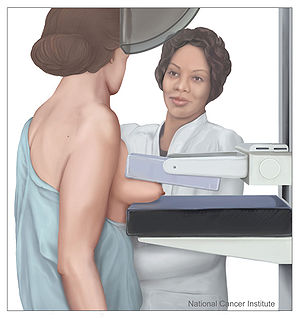
Earlier this week I went to my primary care physician for a well-woman check-up. Truth be told, I went back because she wouldn’t refill my medications without a follow-up visit. In the past two years I’ve had only nurse visits for the annual flu shots and TB tests I need for work. I’ve felt—and am—healthy.
I like my doctor. She’s a family medicine doctor who specializes in women’s health, and she ‘treats me like an informed adult’ (her words) when I politely refuse her recommended cancer screening tests, such as mammograms. Except for my age, I am in a low-risk category for most cancers. I know first-hand the cascade of negative, iatrogenic effects that cancer and other medical screening can precipitate. I also know first-hand that many doctors and other health care providers (including nurses) can take personal offense to such ‘non-compliant’ patients as myself. I’ve been scolded like a recalcitrant child and even had an angry radiologist tell me I was being stupid for declining a mammogram. I’m fortunate that I live in a large metropolitan area, have sufficient health insurance, as well as good health literacy, that I can fire these health care providers and find better ones.
But even my current ‘good doctor’ smiled at me ruefully as she said she had to keep encouraging me to have the recommended screening tests done—as she was checking off boxes on my electronic medical record. I realized I was probably reducing her monetary incentives for quality of care measures, and failing to contribute to paying off the expensive state-of-the-art mammography machines that her particular health system owns.
The day after my doctor’s visit I read the provocative NYT Op-Ed essay “Cancer Survivor or Victim of Overdiagnosis?” written by physician and Dartmouth health services researcher H. Gilbert Welch. He refers to recent results of research published in the NEJM “Effects of Three Decades of Screening Mammography on Breast-Cancer Incidence,” a paper he co-authored with Archie Bleyer, MD (11-22-12). They looked at U.S. population-based data from 1976-2008 on breast cancer screening, and the incidence of both early and late-stage breast cancer. They estimated that breast cancer was overdiagnosed (tumors detected on screening that would never progress to clinically-relevant symptoms/ ‘real cancer’) in 1.3 million women in the past thirty years. The incidence of overdiagnosis is likely to have increased exponentially in the last decade with the use of more sensitive digital mammography screening. The researchers conclude that screening mammography has little to no impact on breast cancer mortality, and indeed, is doing more harm than good as a public health measure.
They do acknowledge that breast cancer mortality has fallen substantially in the U.S. and Europe over the past thirty years (and especially so for women diagnosed before age 40 when they wouldn’t have had mammograms), but that it is due to improved treatments and not to breast cancer screening.
In his Op-Ed essay, Dr. Welch points out a health literacy deficit (or a calculated ’misrepresentation/pinking of the truth’ I wonder?) in a recent Komen Foundation campaign “Early Detection Saves Lives.” Survival rates always go up with early detection. If you tell everyone they have cancer, survival will be bound to skyrocket.
I read an interview with Dr. Welch where he urges healthy skepticism toward standard medical practice—like those listed in the check-boxes at my doctor’s office. Our tests and screenings have become so sensitive that we can find abnormalities in just about everyone. That can start a cascade of harmful events (including the stress from the ‘diagnosis’ and uncertainty), when most of those abnormalities won’t end up causing disability or death. He concludes with “Health is much more than not being able to find something wrong.”

It is a good thing that you really got a good doctors which is reminding you what you need to do.In Finland country medical care is something that patient really need to consider that’s why many of patient use to hire a home nursing and other nurse that in case of emergency are always there.